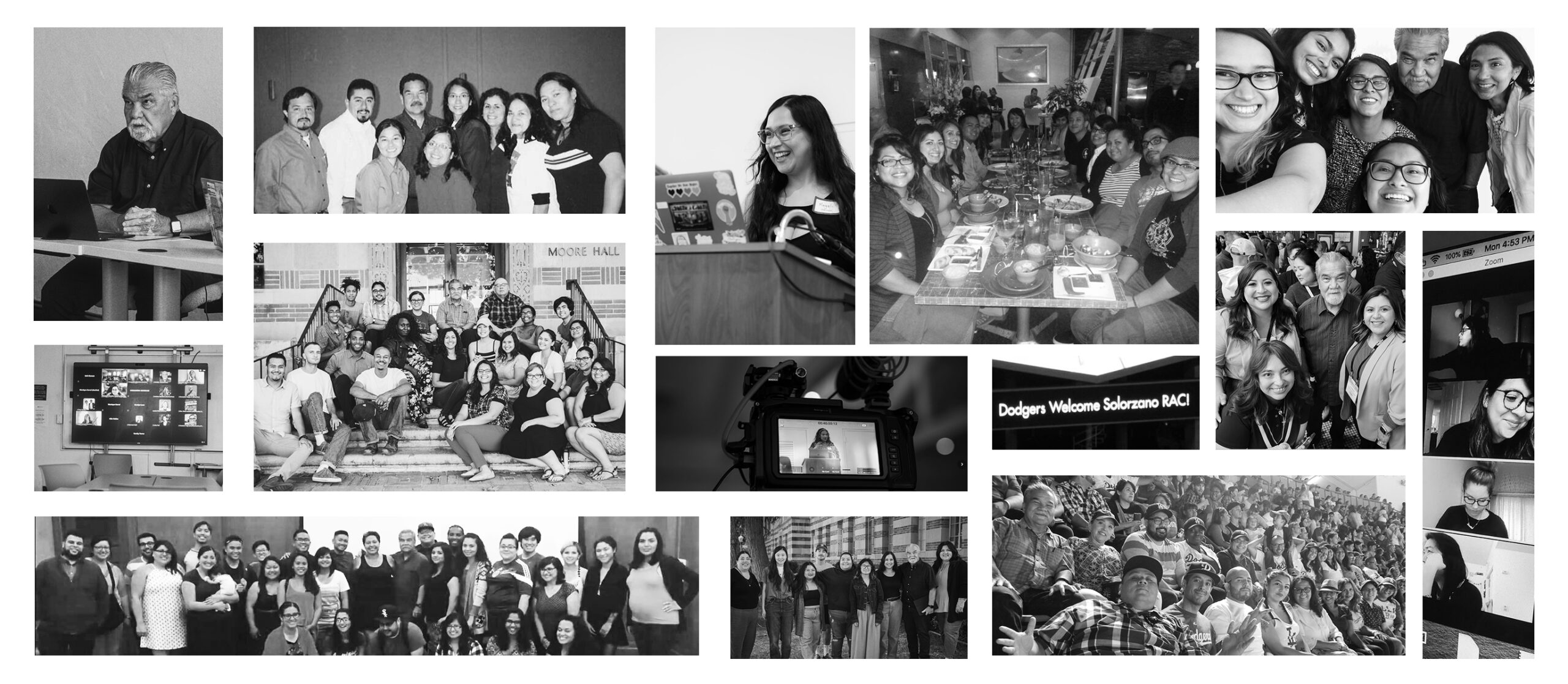Meet the CCRSE Team
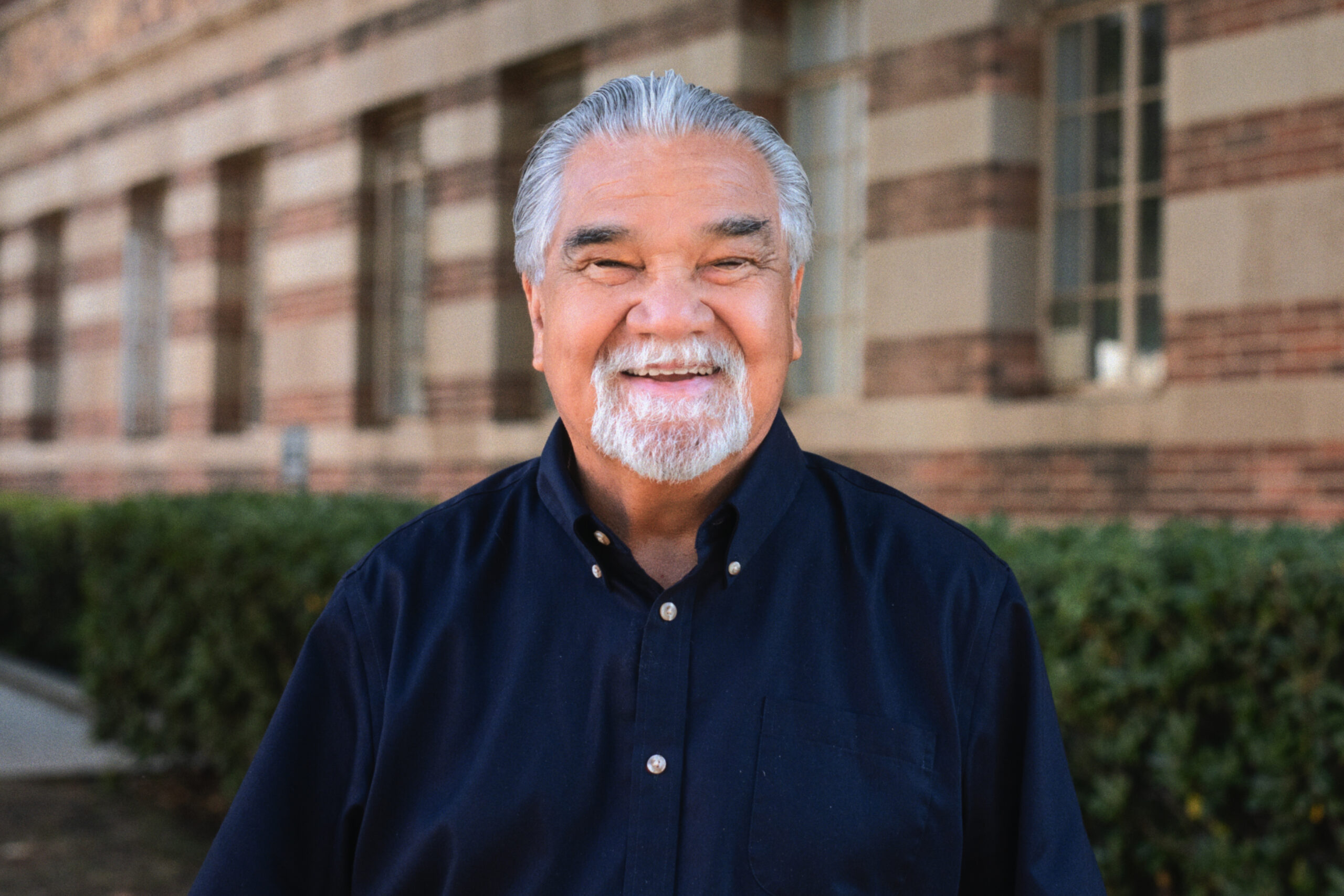
Daniel G. Solórzano, Ph.D.
Director
solorzano@seis.ucla.edu
Daniel G. Solórzano is a professor in the University of California Los Angeles’ Departments of Education and Chicana/o and Central American Studies. He is also the Director of the Center for Critical Race Studies in Education at UCLA. He is an interdisciplinary scholar with research and teaching interests in critical race theory, racial microaggressions and microaffirmations, and critical race spatial analysis. He is the co-author (with Lindsay Perez Huber) of Racial Microaggressions: Using Critical Race Theory to Respond to Everyday Racism (2020), which examines how People of Color are impacted by and respond to everyday racism in the form of racial microaggressions. He is also co-editor (with Michaela Mares-Tamayo) of the award-winning anthology The Chicana/o Education Pipeline: History, Institutional Critique, and Resistance (2018), which traces 45 years of education scholarship in the oldest Chicana/o Studies journal in the U.S.—Aztlán: A Journal of Chicano Studies. For his early body of work, Solórzano received the Tomas Rivera Center Postdoctoral Fellowship, the Educational Testing Service Postdoctoral Fellowship, and the Ford Foundation Postdoctoral Fellowship. For the last 50 years, Solórzano has served in all three segments of California’s public postsecondary education. In 2007, Professor Solórzano received the UCLA Distinguished Teaching Award. In 2012, Solórzano was presented with the American Education Research Association (AERA) Social Justice in Education Award. In 2012, Solórzano was also awarded the Critical Race Studies in Education Association Derrick A. Bell Legacy Award. In 2013, Solorzano was given the Mildred Garcia Exemplary Scholarship Award from the Association for Studies in Higher Education (ASHE). In 2014, Solórzano was elected a Fellow of the American Education Research Association. In 2017, Solórzano received the inaugural Revolutionary Mentor Award from the Critical Educators for Social Justice (CESJ) within the American Educational Research Association. In 2019, Professor Solórzano delivered the AERA Distinguished Lecture on Racial Microaggressions. In 2020, Solórzano was elected to the National Academy of Education. In 2022, Professor Solórzano received the Spencer Foundation Mentorship Award.
Professor Solórzano grew up in Los Angeles, California, and received a B.A. degree from Loyola University in Sociology and Chicana/o Studies, an M.Ed. in Urban Education from Loyola Marymount University, and an M.A. and Ph.D. from the Claremont Graduate School in the Sociology of Education.

Omar Ismael Alvardo, M.Ed.
Associate Director
oalvarado@ucla.edu
Omar is a doctoral student in Race, Ethnic, and Cultural Studies Education at the University of California, Los Angeles (UCLA). His work broadly focuses on retention efforts and the college-to-career transition of Students of Color from underserved communities. His research hopes to highlight the positive impact of Central American Studies on the ability of U.S. Central American students to mitigate the racial and ethnic-based microaggressions they experience in educational institutions. As a son of the Central American diaspora, he hopes to honor the stories and legacies of his colleagues and their families, which are entrusted to him. His research brings together Critical Race Theory, Latina/o Critical Legal Theory, Black Latinidad, Critical Latinx Indigeneities, and a Comparative Analytic Framework to highlight the heterogeneous nature of the Central American diaspora. He earned his Master of Education in Student Affairs and his Bachelor of Arts in Chicana/o and Central American Studies, with a minor in History, focusing on Mesoamerica, from UCLA. His journey through higher education is a meaning-making project as much as an academic endeavor.

Michelle C. Velasco, M.A. Ed.
Assistant Director
michellecv1996@ucla.edu
Michelle C. Velasco (she/her/siya) is a Ph.D. student at UCLA in Race, Ethnic, Historic, and Cultural Studies. She is a proud Pinay, descendant of immigrants, and a first-generation college student. She completed her M.A. in Education at CSULB in Social and Cultural Analysis of Education & her B.A in Sociology and Global Studies at UCLA. Her research interests examine the social, cultural, and historic institutions that influence how Pilipinx students navigate higher education. Prior to doctoral education, she worked as a TRiO college advisor and coordinator to support low-income and first-generation students of color in navigating higher education. Additionally, Michelle is a CSU Chancellor’s Doctoral Incentive Program Fellow.

Brenda Yvonne Lopez, Ph.D.
Media Coordinator & Visiting Scholar
byl230@g.ucla.edu
Brenda Yvonne Lopez is an interdisciplinary scholar, educator, and filmmaker whose work brings together Critical Race Feminista methodologies, culturally responsive pedagogy, and visual storytelling. She earned her PhD in Social Sciences and Comparative Education from UCLA, with a specialization in Race and Ethnic Studies. Her research and creative practice center the voices and experiences of Women and People of Color, particularly within film education and media production.
Her academic and creative work includes a broad portfolio of documentary and narrative films, as well as media-based curricular projects that have been featured in classrooms and film festivals internationally. Recent projects include From the Margin to the Center, a film series highlighting Latinx and Black faculty in Education and Information Studies at UCLA. Her scholarship has appeared in the International Journal of Qualitative Studies in Education, and she continues to develop projects that explore Critical Race Feminista methods, creativity, and storytelling as tools for social transformation.
A Gates Millennium Scholar and recipient of multiple film and research awards, Brenda is committed to developing media and pedagogy that challenge dominant narratives and create space for historically marginalized voices in both education and film online.

Brenda Chavez, B.A.
Research Assistant
Brenda Chavez transferred from Santa Ana College to UCLA where she completed her undergraduate degree in Psychology with a minor in Education Studies. During her time at UCLA she was a research fellow with AAP’s Educators for Tomorrow and a research assistant for the Research, Assessment and Evaluation. Brenda’s research centers the experiences of non-traditional Latinx students in higher education, specifically community colleges. She currently works at Santa Ana College as a Student Services Specialist for the EOPS, CARE, and CalWORKs programs and volunteers for the Transfer Mentor Program where she provides culturally-relevant mentoring to first-generation BIPOC students on the transfer path.

Kourtney Kawano, M.A.
Research Associate
k14kokawa@g.ucla.edu (until July 2025)
Kourtney Kawano (she/her) is a wahine ʻŌiwi (Native Hawaiian woman) scholar specializing in critical inquiries into race, ethnicity, and culture across P–20 schooling pipelines. She earned her Ph.D. from UCLA’s School of Education and Information Studies and is a 2024 National Academy of Education/Spencer Foundation Dissertation Fellow. The proverb “ʻAʻohe pau ka ʻike i ka hālau hoʻokahi (all knowledge is not taught in the same school)” grounds her research on Indigenous learning and resistance in schools, homes, and communities. She is a proud first-generation college graduate and product of Hawaiian culture-based K–12 schooling.

John Pak, M.Ed.
Research Associate
johnpak@g.ucla.edu
John Pak is a Ph.D. candidate at UCLA’s Graduate School of Education and Information Studies (GSE&IS), specializing in Race, Ethnic and Cultural Studies. He also serves as a Lecturer for the Department of Deaf Studies at California State University, Northridge (CSUN). His research reimagines Deaf Critical Race Theory with a focus of racialized audism and the pedagogical and epistemological resistance strategies of Deaf Students of Color. As a Deaf Person of Color, John integrates his lived experiences to examine the dynamics of microaggressions and microaffirmations in both academic and social settings. His work highlights how Deaf Communities of Color foster resilience and engage in everyday resistance through counterstorytelling

Sarahy Torres, B.A.
Research Associate
Sarahy Torres is a first-generation college student born and raised in the unincorporated areas of Oxnard, CA (Nyeland Acres and El Rio). She is also the proud daughter, granddaughter, and great-granddaughter of farmworkers/Braceros. She received her B.A. in Chicana/o and Central American Studies and Education from UCLA. She is a current PhD student in Chicana/o and Central American Studies at UCLA, studying the challenges of women farmworkers inside and outside the fields, specifically food accessibility, reproductive justice, and sexual violence.
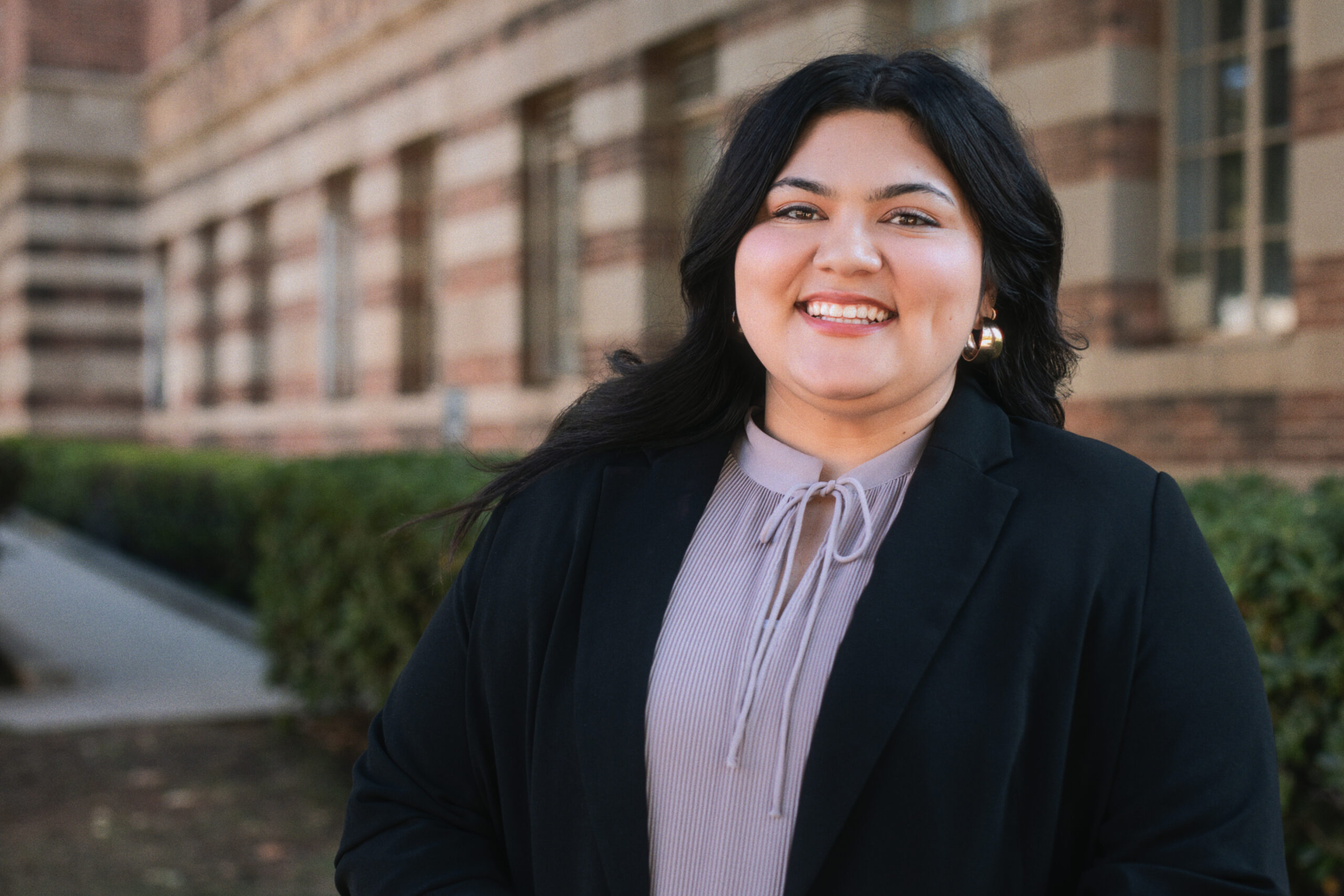
Lilia Valdez, J.D., M.P.P
Research Associate
lvaldez930@ucla.edu
Lilia is currently a PhD student at UCLA’s School of Education and Information Studies studying Race, Cultural, and Ethnic Studies. Her research explores the implementation of educational policies in American K-12 school systems and the ways in which historically marginalized communities, such as English Language Learners, are considered in policy implementation at the local level. Prior to her time at UCLA, Lilia attended Loyola University Chicago where she received her Juris Doctorate and master’s in Public Policy. Lilia has held positions as a Senior Policy Analyst with UCLA’s Academic Senate, a Research Assistant at the Civitas ChildLaw Center’s Legislation and Policy Clinic, an Extern with the Mexican American Legal Defense and Education Fund (MALDEF) and a Law Clerk with the City of Chicago’s Law Department. Lilia was born and raised in Southern California, where she attended California Baptist University and received her Bachelors degree in English and Political Science.

Yadira Valencia, M.A.
Research Associate
yaya2yadi@g.ucla.edu
Yadira Valencia is a doctoral candidate in the Social Science and Comparative Education division (Race and Ethnic Studies specialization at UCLA SE&IS). She is a Graduate Student Researcher for the Research, Assessment, and Evaluation (RAE) division at the Academic Advancement Program (AAP). AAP serves first-generation, low-income, underrepresented students in UCLA by providing research, counseling, academic, and other services. Through RAE she works alongside undergraduate students as they develop their research interests that centers the needs and experiences of AAP students. As a research associate for CCRSE, she is part of a research project that aims to document the narratives and experiences of previous and current RAC members. Her research centers the academic experiences of citizen daughters in Latinx mixed-status families as they navigate their familial obligations along with their educational responsibilities.
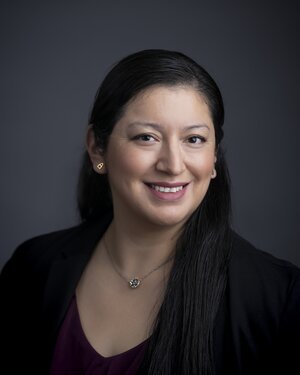
Lluliana Alonso, Ph.D.
Visiting Scholar
Lluliana.Alonso@csulb.edu
Lluliana Alonso is an Assistant Professor of Urban Education in the Liberal Studies Department at California State University Long Beach. As an interdisciplinary scholar, her research centers local Chicana/o community histories of education, specializing in the nexus between juvenile delinquency discourse and educational policy & practice in the first half of twentieth century. Her work builds on previous scholarship that documents the pervasiveness of racism within and beyond schools in Los Angeles between 1930-1949. In addition, a second strand of her research agenda examines the educational trajectories and conditions of Latina/o teacher candidates in rural fronterizo contexts along the U.S./Mexico borderlands. Originally from South Central Los Angeles, she is a proud first-generation college graduate who began her educational trajectory at Santa Monica College and transferred to University of California Los Angeles (UCLA) where she obtained a B.A. in Political Science, M.A. in Education and Ph.D. in Social Science and Comparative Education with a focus on Race & Ethnic Studies.

Lorena Carmago Gonzalez, Ph.D.
Visiting Scholar
lcamargo@ucla.edu
Lorena Camargo Gonzalez [she/her/ella] is an Assistant Professor of Undergraduate Studies in Education and Gender Equity at Sacramento State University. Dr. Camargo Gonzalez earned her Ph.D. from UCLA’s School of Education and Information Studies with a specialization in Race and Ethnic Studies. She also holds a master’s degree in education from Long Beach State University and a bachelor’s degree in Ethnic Studies with a concentration on Chicana/o Studies from Sacramento State University. Her educational experiences as an immigrant and first-generation college student inform her interdisciplinary approach in drawing from Critical Race theories, Chicana/Latina Feminist theories, and historical methods such as oral histories and archival research to address the following areas: 1) the activism of Latina/o/x librarians;
2) racial justice within library services, and 3) the history of Latina/o/x children’s literature.

Magali Campos, Ph.D.
Visiting Scholar
maxcampos@ucla.edu
She is a first-generation Latina Feminista Scholar. Her interdisciplinary research centers on the experiences of Women of Color in academic settings and explores the different forms of silence they encounter. Using a Critical Race Theory, Women of Color Epistemology, and Chicana/Latina Feminist Methodologies in my research, she developed a spectrum of silence that demonstrates the contextual nuances of silence. Magali received her doctoral degree in the Social Science and Comparative Education program with a Race and Ethnic Studies specialization at UCLA’s School of Education and Information Studies. She works as a lecturer at California State University, Fullerton, in the Chicana and Chicano Studies Department. She is proud to be born and raised in the Southeast Los Angeles (SELA) city of Huntington Park.

Gabriela Corona Valencia, Ph.D.
Visiting Scholar
gcoronav1995@ucla.edu
Dr. Gabriela G. Corona Valencia received her Ph.D. in Education, specializing in race, ethnic, and cultural studies from the School of Education and Information Studies at UCLA. Her research explores the bridge between 20th-century eugenic policy in the American Southwest and the contemporary sex education discourse disseminated to Chicana/Latina girls in K-12 public schools in East Los Angeles. In addition to her interests in histories of public health and medicine in education, she also uplifts the criticality of engaging with pedagogies of pleasure and desire when building liberatory realities for women and girls of color. She is excited to add a strand to her research mission, which includes the archival mining of state records and an in-depth analysis of 1980s immigration policies that targeted the reproductive experiences of Central American women and girls who sought refuge in the U.S. after escaping the violence of the Salvadoran Civil War. Dr. Corona Valencia is also co-leading the direction and production of a radiophonic historical series, American History EugeniX, a digital media project dedicated to the art of counterstorytelling to bring justice to victims of eugenic violence.

Cindy Raquel Escobedo, Ph.D.
Visiting Scholar
Dr. Cindy R. Escobedo’s research, teaching, and professional passions explore the intersections of educational (in)equities, Student and Women of Color academic pathways, mother-daughter relationships, and the raced and gendered sociology of family. She received her Ph.D. from UCLA’s Graduate School of Education and Information Studies. She is a National Academy of Education/Spencer Foundation Dissertation Fellow and UC Office of the President Dissertation Fellow. As an adjunct professor teaching across the CSU and UC systems, Cindy designs courses offered through Ethnic Studies and Education Studies programs. Cindy is concurrently a Visiting Scholar for the Center for Critical Race Studies in Education at UCLA and serves as a Senior Research Consultant for the Peer Learning Unit within the UCLA Academic Advancement Program (AAP). A three-time UCLA Bruin, Cindy holds a M.A. degree in Education, and a B.A. degree in Political Science with double minors in Education and Public Affairs.
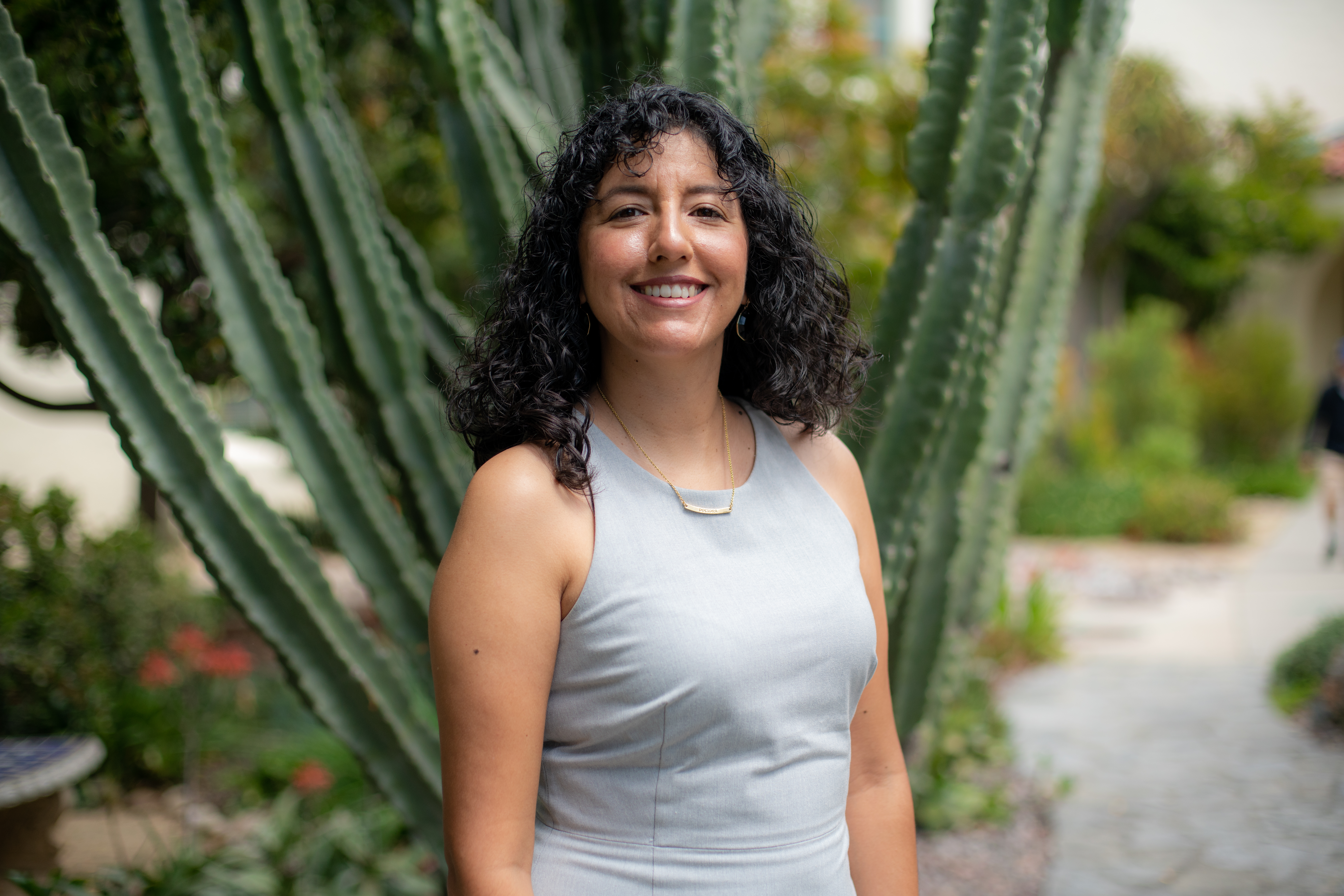
Tanya J. Gaxiola Serrano, Ph.D.
Visiting Scholar
tgaxiolaserrano@sdsu.edu
Dr. Tanya J. Gaxiola Serrano (she, her, ella) is Associate Professor in Administration, Rehabilitation and Postsecondary Education (ARPE) at San Diego State University. Dr. Gaxiola Serrano earned her Ph.D. from UCLA’s Graduate School of Education and Information Studies with a specialization in Race and Ethnic Studies. During her time at UCLA, she served as a founding member and assistant director for the Center for Critical Race Studies in Education. She is a Ford Foundation Fellow and American Association of Hispanics in Higher Education (AAHHE) Graduate Student Fellow and Faculty Fellow. Dr. Gaxiola Serrano is a student of Critical Race Theory and Chicana/Latina feminisms. As a first generation immigrant and college student from the Tijuana-San Diego borderlands, her research explores the racialized inequities faced by Communities of Color when navigating educational and border spaces, as well as conceptualizes critical methodological approaches in higher education. Dr. Gaxiola Serrano’s research has been published in book chapters and journal articles including the Community College Journal of Research and Practice, the Journal of Latinos and Education, and the International Journal of Qualitative Studies in Education.
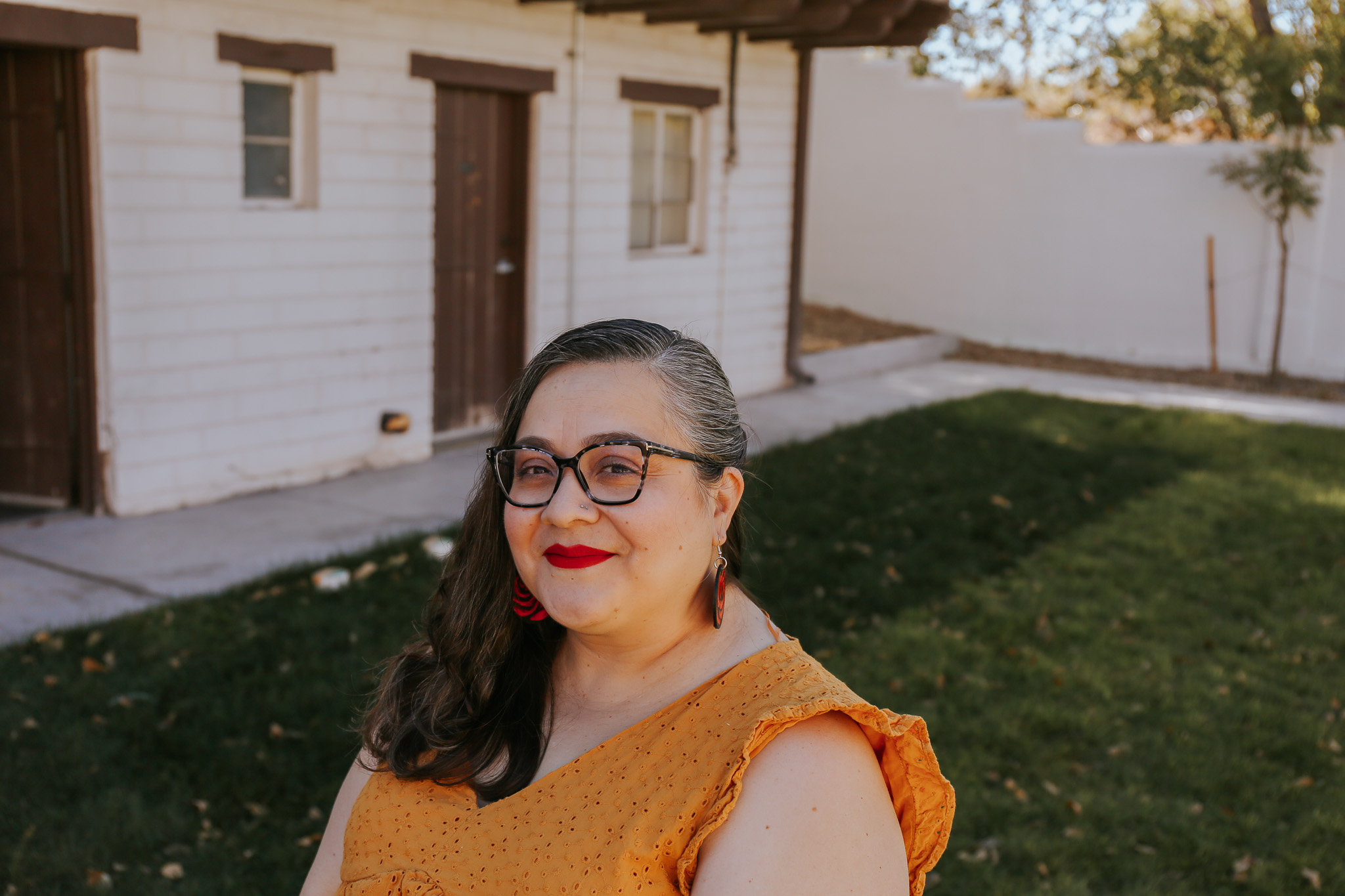
Elizabeth González Cárdenas, Ph.D.
Visiting Scholar
egonzalezcardenas@unm.edu
Dr. Elizabeth González Cárdenas is an Assistant Professor in the Department of Chicana and Chicano Studies at the University of New Mexico and has published research on community-based learning and femtoring in Chicana Chicano Studies. She is finishing her book manuscript on the impact of Chicana and Chicano Studies on students in Higher Education. Dr. González Cárdenas’ training and degrees (Ph.D. in Education with an emphasis on Race & Ethnic Studies from UCLA and a B.A. in Chicana and Chicano Studies from CSUDH) have informed her multi-disciplinary research, teaching, and interests. Her approaches incorporate the fields of education, sociology, and history to examine the efficacy of Chicana Chicano Studies curriculum and pedagogy. Using oral interviews and archival research, her findings demonstrate that participants developed and maintained a social justice ethos within their careers, family, and community. Her research also demonstrates that Chicana Chicano Studies provides culturally relevant support towards students when obtaining their baccalaureate degrees and is key in their academic success. Dr. Elizabeth González Cárdenas is also a co-founder and co-editor-in-chief of Regeneración: A Xicanacimiento Studies Journal housed in the Department of Chicana and Chicano Studies at the University of New Mexico. During her time at UCLA, she also co-founded Regeneración Tlacuilolli: UCLA Raza Studies Journal.

Tonia F. Guida, Ph.D.
Visiting Scholar
tonia.guida@austin.utexas.edu
Dr. Tonia Guida is an Assistant Professor in the Division of Pharmacy Practice at The University of Texas at Austin College of Pharmacy. She leads the pathway training programs in the college including Project Engage Pharmacy program (PEPP), Building Our Own Talent (BOOT) graduate student program, and LEADER, an undergraduate summer research program. She also co-chairs the college’s Opportunity and Engagement committee. Dr. Guida earned a B.A. in Sociology and Education Studies from The University of California, Los Angeles, an M.Ed. in Higher Education and Student Affairs from the University of Texas at Austin, and a Ph.D. in Social Science Comparative Education with a concentration in Race and Ethnicity at The University of California, Los Angeles. She holds a faculty affiliate appointment in the Department of Educational Leadership and Policy, the Texas Center for Equity Promotion in the College of Education, and is a visiting scholar in the Center for Critical Race Studies in Education at UCLA. She has over 10 years of experience as a higher education scholar practitioner working with student success programs, undergraduate research, pre-college outreach, study abroad, Summer Bridge Programs, and Inclusive Teaching & Learning. Her research theorizes around whiteness and educational access in higher education contexts.
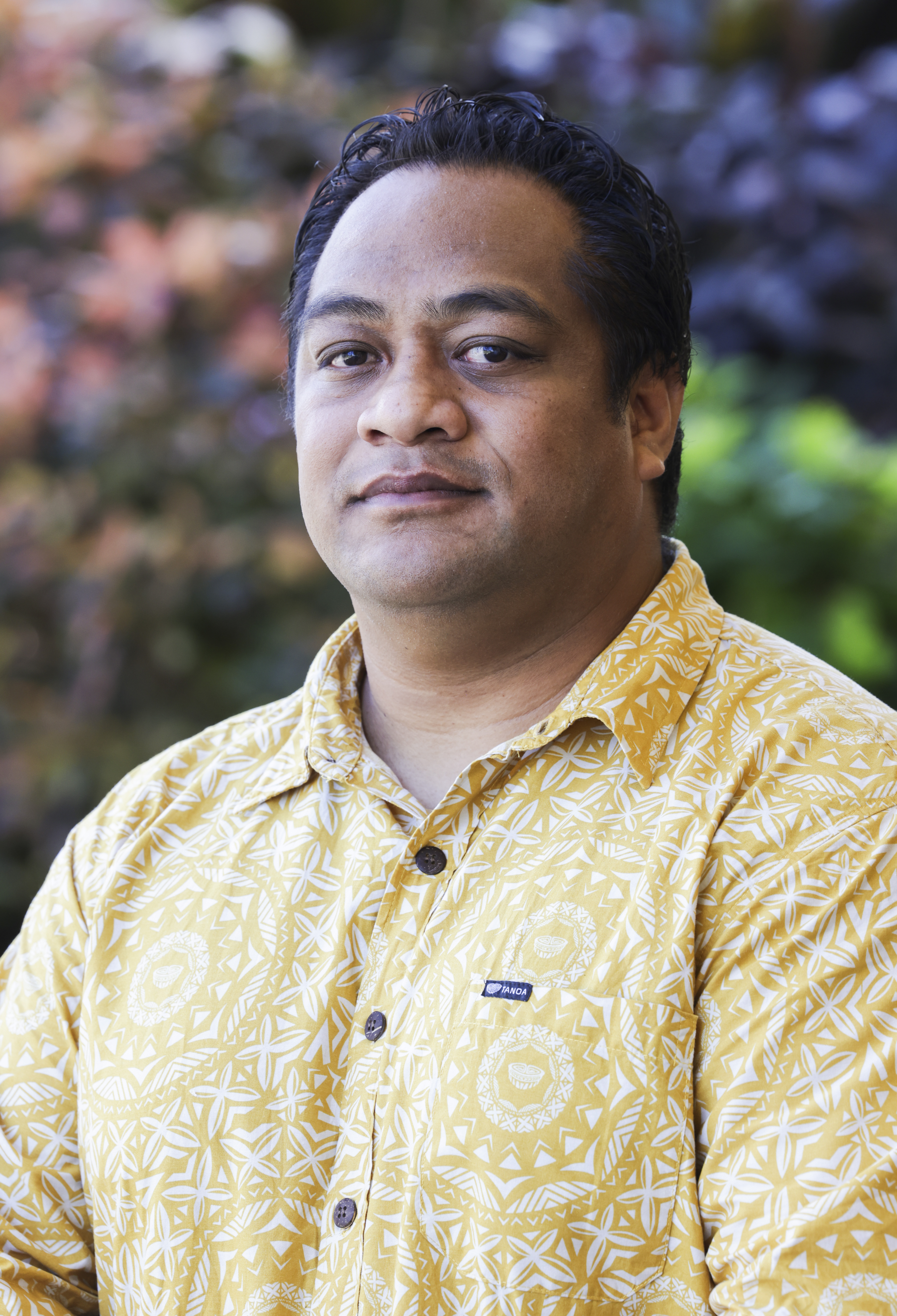
‘Inoke Hafoka, Ph.D.
Visiting Scholar
inoke.hafoka@byuh.edu
‘Inoke Hafoka is the son of Tongan immigrants and raised in Glendale of Soonkahni (Salt Lake Valley in Utah). Hafoka is currently an Assistant Professor and Program Lead of Pacific Studies at BYU–Hawaii. His research interests includes: diaspora, identity, migration, race, education, knowledge production, revitalization / re-imagination, sports, talanoa. Hafoka has published in AlterNative: An International Journal of Indigenous Peoples, Pacific Studies, Oceania, Journal of Diversity in Higher Education, Journal Committed to Social Change on Race and Ethnicity, and more.

Michaela Mares-Tamayo, Ph.D.
Visiting Scholar
michaela.j@ucla.edu
Michaela Mares-Tamayo received her Ph.D. in Race and Ethnic Studies in Education at UCLA, exactly fifty years after her father became the first in their family to graduate from college – also from UCLA. Her research brings together the epistemological strengths and methodological tools of critical race theory in education, history, and Ethnic Studies to document the experiences of Students and Communities of Color in local school districts over time. She has been invited to present at staff trainings for the UCLA Center for Community College Partnerships; university courses and community events; and in the form of the opening lecture for the Vrije University’s Introduction Days in Amsterdam, Netherlands. As a Visiting Scholar, she recently completed a co-edited anthology of 40 years of education scholarship in the oldest journal in Chicana and Chicano Studies—Aztlán: The Journal of Chicana and Chicano Studies, titled The Chicana/o Education Pipeline: History, Institutional Critique, and Resistance, with Dr. Solórzano.

Socorro Morales, Ph.D.
Visiting Scholar
socorrom1@cpp.edu
Dr. Socorro Morales (she/her/ella) is a queer Chicana from Fontana, CA. She is currently an Assistant Professor in the Educational Leadership Department at California State Polytechnic University, Pomona. Her research interests include racial and gender (in)equities in education, specifically for Chicanx communities. As a Chicana feminist race scholar, her understandings of school inequity are anchored in the idea that educational institutions were and remain structurally intended to stratify society along racial, gendered, and classed lines. Her scholarship is also interdisciplinary, drawing from fields such as sociology, ethnic studies, and women’s studies in informing her lens on school inequity. Through illuminating how Chicanx students have been subjected to substandard schooling, Dr. Morales’ research also seeks to highlight how Chicanx youth resist such schooling conditions.

Audrey D. Paredes, Ph.D.
Visiting Scholar
aparedes@csusm.edu
Audrey D. Paredes, Ph.D. is an assistant professor of educational leadership and administration in the School of Education at California State University, San Marcos (CSUSM). Her role as a teacher-scholar is informed by her positionality as the daughter of Guatemalan immigrants, first-generation college student, and a former college student affairs practitioner. As an interdisciplinary scholar, Dr. Paredes’ broader research agenda utilizes critical approaches to understand and conceptualize the ways in which institutions of higher education, specifically Minority Serving Institutions (MSIs), can be sites of transformation so that systemically marginalized communities can thrive. Currently, her research focuses on responding to the heterogeneity of the Latina/o/x college student population within the context of federally designated Hispanic Serving Institutions (HSIs) by way of examining the lived experiences of Central American undergraduates. Dr. Paredes’ has expertise in anti-racist and decolonial theories such as Critical Race Theory and Chicana/Latina Feminist Theories as well as, Chicana/Latina Feminista qualitative methodologies. Prior to joining CSUSM, she was a post-doctoral scholar at UCLA, the lead project manager for the University of California’s Hispanic Serving Institutions (UC-HSI) Initiative, and a consultant for the UC Asian American Native American Pacific Islander Serving Institutions (AANAPISI) working group. Dr. Paredes earned her Ph.D. in education with a specialization in race and ethnic studies at the UCLA, MA in education at UCLA, and BA in Gender, Ethnicity, and Multicultural Studies (concentration in Chicana/o Studies) from California State Polytechnic University, Pomona.

Bryant Partida, Ph.D.
Visiting Scholar
bryant.partida@canyons.edu
Bryant Partida was born in East Los Angeles, raised in South Phoenix, and is currently rooted in Pacoima, California. He is currently a Professor of Chicana/o/x Studies in the Department of Ethnic Studies at College of the Canyons in Santa Clarita, California. Grounded at the intersections of Chicana/o/x Studies, history, and education, Professor Partida received his Bachelor of Arts from Arizona State University, a Master of Arts from CSU Northridge, and a PhD from UCLA. Bryant’s work documents the 20th-century educational histories of Mexican, Mexican American, and Chicana/o communities through a Critical Race Educational History and relational lens. He is currently expanding his work focusing on the 1970 Chicana/o boycott of Phoenix Union High School into diverse research strands that include a wider district relational analysis of race and racism in the Phoenix Union High School District between 1895 and 1982, further documenting the history of segregated Mexican schools in the Valley, and early 1900s historical Mexican and Mexican American educational social movements in Phoenix and Arizona. Bryant has also translated his interdisciplinary research skills and teaching experience to provide professional development-based history-based workshops for Ethnic Studies teachers. He has also served as a public history consultant and co-curator of Chicana/o/x educational and community history exhibits.

Lindsay Pérez Huber, Ph.D.
Visiting Scholar
lindsay.perezhuber@csulb.edu
Dr. Lindsay Pérez Huber is Professor in the College of Education at California State University, Long Beach. She leads and coordinates the master’s program in Equity, Education, & Social Justice (EESJ) program. Her research specializations include race, immigration and higher education, racial microaggressions, and critical race feminista methodologies and epistemologies. Her work is known for further developing theoretical and conceptual frameworks in Critical Race Theory (CRT), bridging CRT and Chicana Feminist perspectives in Education, and for her contributions in understanding Latinx undocumented student experiences. Dr. Pérez Huber is a Ford Foundation Fellow and Faculty Fellow of the American Association of Hispanics in Higher Education (AAHHE). She is also the past Vice President of the Critical Race Studies in Education Association (CRSEA). During her career, Dr. Pérez Huber has supported over 70 thesis and dissertation Students of Color as chair and/or committee member. Dr. Pérez Huber was a recipient of the 2019 Derrick Bell Legacy Award for her contributions to Critical Race Theory (CRT) by the Critical Race Studies in Education Association (CRSEA). She received her Ph.D. in Social Science and Comparative Education (SSCE), with a specialization in Race and Ethnic Studies from the UCLA Graduate School of Education and Information Studies. In 2020, Dr. Pérez Huber published the co-authored book, “Racial Microaggressions: Using Critical Race Theory to Respond to Everyday Racism.” She is also co-editor of the 2021 book, “Why They Hate Us: How Racist Rhetoric Impacts Education.”

Feliz Quiñones, Ph.D.
Visiting Scholar
fquinones@ucla.edu
Feliz Quiñones is the Assistant Director of Research, Assessment, and Evaluation (RAE) at UCLA’s Academic Advancement Program (AAP). As part of the RAE team, she coordinates the management, development, and administration of AAP-wide survey efforts and assessment projects to center the voices of first-generation, low-income, underrepresented students at UCLA. She earned her B.A. in Psychology from the University of California, Santa Cruz and her Ph.D. and M.A. in Education, with a concentration in Human Development and Psychology, from UCLA’s School of Education and Information Studies. Her main line of research focuses on examining how the neighborhood and school contexts shape middle and high school students’ experiences with racial/ethnic discrimination. In her previous work as a Postdoctoral Fellow at the University of California, Berkeley’s Institute of Human Development, she worked with school sites and community organizations to evaluate the effectiveness of a Latinx parenting program. As a current Visiting Scholar for the Center for Critical Race Studies in Education at UCLA, she is part of a research project that aims to document the narratives and experiences of previous and current RAC members. Feliz is also very passionate about the work she does alongside her students as an adjunct faculty teaching research methods at California State University, Dominguez Hills.

Ryan E. Santos, Ph.D.
Visiting Scholar
ryan.santos@csulb.edu
Ryan E. Santos is a proud product of California public schools. Dr. Santos is currently a Lecturer in both the Equity, Education, & Social Justice program at California State University, Long Beach; and the Chicana(o) and Latina(o) Studies department at California State University, Los Angeles. His interdisciplinary training is rooted in the fields of education and ethnic studies; having earned his B.A. in Chicano and Latino Studies from CSULB and completing his M.A. and Ph.D. in Education at UCLA with a specialization in Race and Ethnic Studies in Education. Dr. Santos’s research documents and interrogates Chicana/o and Latina/o histories of resistance against educational inequality. He uses a Critical Race Educational History framework to explore Chicana/o community experiences and perspectives of school desegregation efforts in Crawford v. Los Angeles Board of Education (1963-1982). Dr. Santos’s work contextualizes the events of Crawford within the larger Chicana/o movement struggle for educational and social justice. His research has been published in the Journal of Hispanic Higher Education and Journal of American Ethnic History.

Mary Senyonga, Ph.D.
Visiting Scholar
senyonga@csus.edu
Mary Senyonga (she/her(s)) is an Assistant Professor of Black Feminisms in Women’s and Gender Studies at Sacramento State University. Her research investigates racial violences in the university, Black student organizing, and the Black fat figure in society. Privileging Black Feminisms and Critical Race Theory, she illuminates the methods that sustain systemic inequity while at the same time centering and celebrating Black people’s disruptions to this condition. Her scholarship was awarded Dissertation of the Year by the American Educational Research Association Division G in 2024. She earned a PhD and MA in Social Sciences and Comparative Education – Race and Ethnic Studies from University of California, Los Angeles (UCLA) and a BA in Psychology from Occidental College. She is currently at work on an extensive project focusing on 1) the impact of the University of California (UC) system on the state of California through archival research and 2) Black women students who attended UCLA during Angela Davis’s dismissal and engaged in varied organizing tactics for change.
